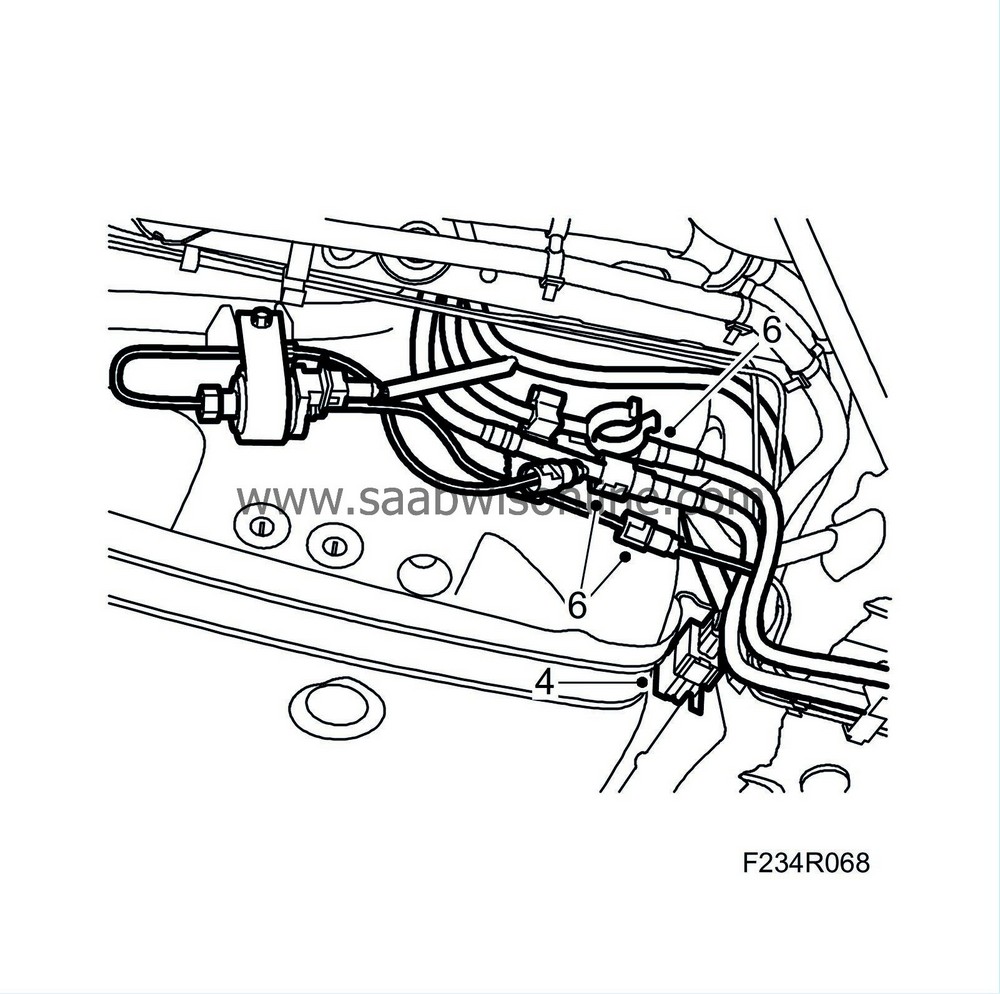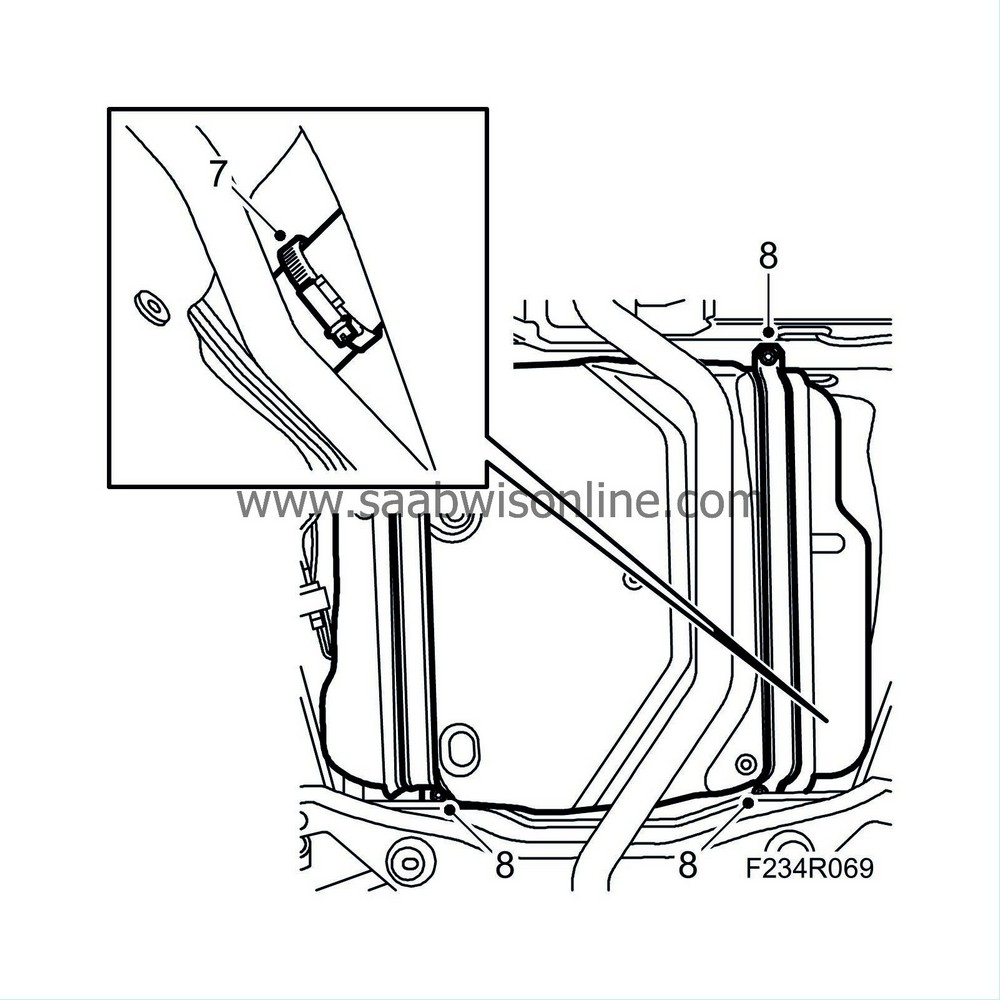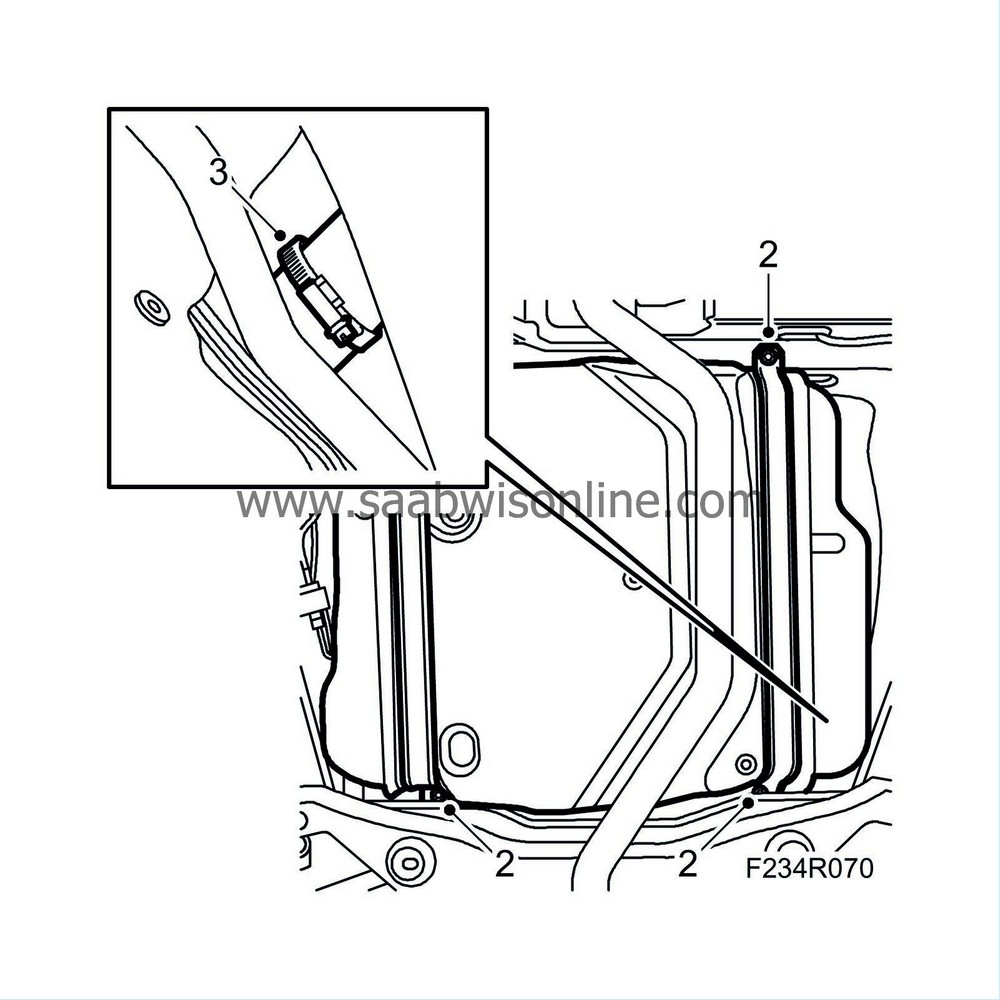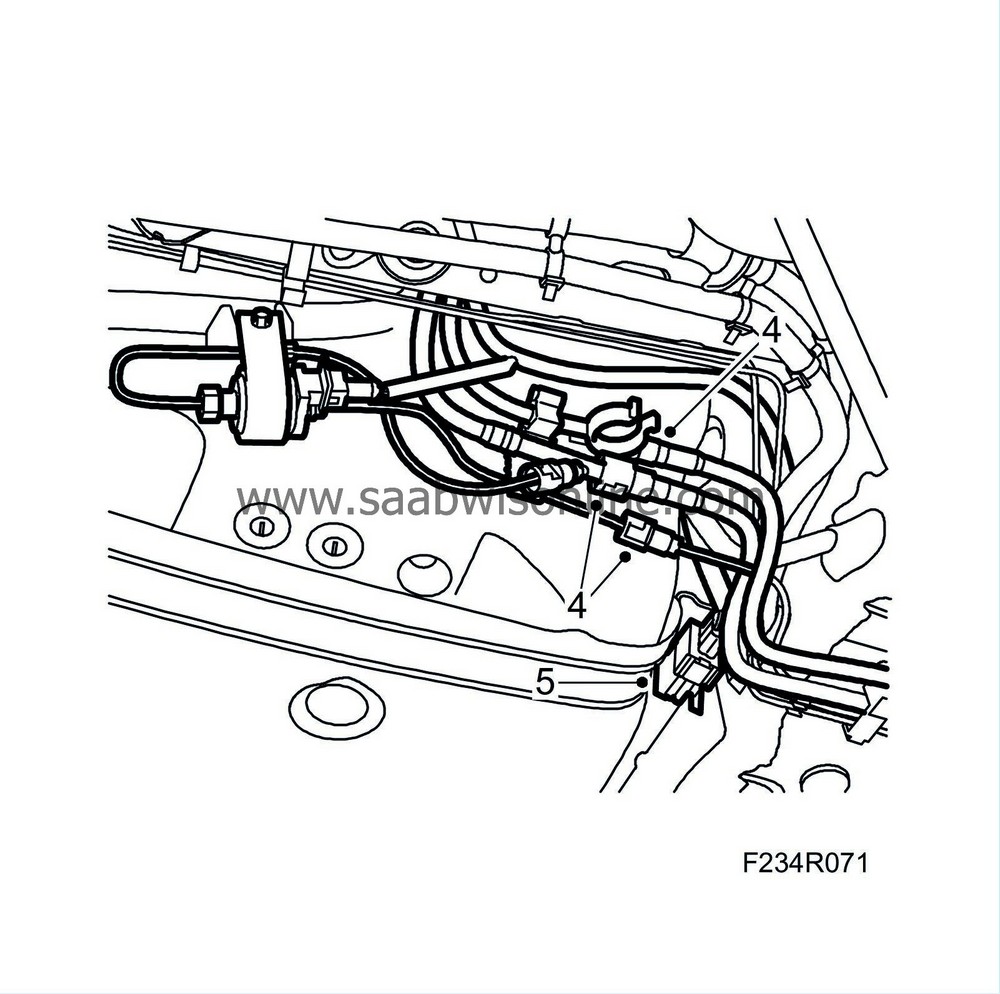PRE-RELEASE
Fuel tank
| Fuel tank |
|
||||||||||||||||||||||
| Important | ||
|
Be particulary observant regardning cleanliness when working on the fuel system. Loss of function may occur due to very small particles. Prevent dirt and grime from entering the fuel system by cleaning the connections and plugging pipes and lines during disassembly. Use 82 92 948 Plugs, A/C system assembly. Keep components free from contaminants during storage. |
||
| To remove |
| 1. |
Drain the fuel tank. Refer to
Draining the fuel tank
.
|
|
| 2. |
Raise the car.
|
|
| 3. |
Remove the exhaust system by removing the three nuts from the catalytic converter and removing the rubber mountings.
|
|
| 4. |
Unplug and remove the connector from the fuel tank.

|
|
| 5. |
Place a receptacle under the tank.
|
|
| 6. |
Remove the fuel lines from the fuel tank. Plug the lines with suitable plugs.
Cars with auxiliary heater:
Disconnect the fuel line to the auxiliary heater and plug the line with a suitable plug. Leave the pump in place in its bracket on the fuel tank.
|
|
| 7. |
Remove the hose clip and bend aside the filler pipe hose.

|
|
| 8. |
Place a column lift under the tank for support and remove the bolts holding the tank straps.
|
|
| 9. |
Lower the column lift and remove the fuel tank.
|
|||||||
| To fit |
| 1. |
Place the fuel tank on a column lift and carefully lift it into place.
|
|
| 2. |
Fit the tank straps and lower the column lift.
Tightening torque 25 Nm (18 lbf ft) 
|
|
| 3. |
Fit the filler pipe hose and tighten the hose clip.
|
|
| 4. |
Remove the plugs and fit the fuel lines.

|
|
| 5. |
Plug in the connector to the fuel tank and fit it into its bracket.
|
|
| 6. |
Fit the exhaust system using a new gasket, new nuts and the rubber mountings. Apply
30 20 971 Screw-thread paste
to the studs. Tighten the joint with the catalytic converter.
Tightening torque 25 Nm (18.5 lbf ft) . |
|
| 7. |
Lower the car and fill the tank with fuel.
|
|
| 8. |
Bleed the fuel system. Refer to
Bleeding the fuel lines
.
Cars with auxiliary heater: Start the heater to bleed the fuel lines. If the fuel heater does not start after a number of attempts, start it with the diagnostic tool. |
|
| 9. |
Start the engine to check its function and for any fuel leaks.
|
|

 Warning
Warning

